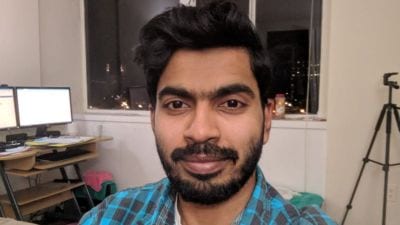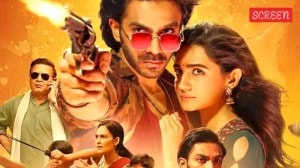The stage is set for Shobhayatra’s English journey
If you think the euphoria over the completion of fifty years of Indian Independence has ended in the country, think again. Mumbai is still...

If you think the euphoria over the completion of fifty years of Indian Independence has ended in the country, think again. Mumbai is still commemorating the historical occasion, though somewhat unconventionally, through the medium of theatre. Rani Laxmibai, Subhash Chandra Bose, Mahatma Gandhi, Lokmanya Tilak, and a battery of freedom fighters are trapped together on the stage for three long hours not to recapitulate our freedom struggle but to present a sordid picture of today’s society.
While the original Marathi play Shobhayatra opened last year, its English version It Happens Only In India will go on the boards on April 23.
Incidentally, Hindi and Gujarati adaptations of the play have been already staged and efforts are on to present it in Bengali too, creating a records of sorts.The multiple adaptations of Shobhayatra are due mainly to the play’s novel theme. An underworld don is given the contract to organise a procession (float) in which each character enacts the role of a freedom fighter. Unable to move in public until the yatra begins, these characters assemble in a godown where they voice their personal frustrations. Each of them embodies values diametrically opposed to those of the leaders they delineate. Enter Barbie, a journalist from a foreign news network. More chaos. And from behind the masks of the leaders portrayed on stage, emerges a real-life drama of debauchery, corruption, caste politics and underworld intrigue.
Interestingly, playwright Shafaat Khan has penned the play in most unusual circumstances. He conceived the concept while backstage, watching the preparations for the function to commemorate the Quit India movement on August 9. “When I went to see the hustle and bustle backstage, the character playing Pandit Nehru asked for a lighter. It struck me that if I were to juxtapose such heroic characters with their players on stage, it would create a drama within a drama. And it could also be used as a vehicle to comment on the present socio-political situation. That’s how Shobhayatra evolved,” he recalls.
Incidentally, Khan had been invited by the West Zone Cultural Centre of Government of India to participate in a playwrights’ workshop two years ago, organised with the intention of “getting plays written” on freedom fighters of different Indian states. Khan had been unable to `write’ the play then. “The idea just came to me spontaneously. At that time I did not even imagine it would appeal so much to so many theatre people,” muses the writer who himself did the Hindi adaptation, which opened at the annual Prithvi Theatre festival last year.
The Gujarati version, written by Anurag Prapanna and directed by Umesh Shukla, came around the beginning of the year 2000. While the Marathi play has notched up over 120 performances, the Hindi and Gujarati productions have over six shows to their credit. Obviously happy over the different adaptations of his script, Khan says, “The issues raised in the play like criminalisation of politics and loss of values are indeed universal. And that is why the play attracts non-Marathi audiences. However, the characters and their sensibilities are essentially rooted in Maharashtrian culture. Therefore, the translation has to be careful regarding this aspect. Fortunately, the adaptations have been true to the script in both letter and spirit.”
According to Shanta Gokhale, who did the English translation of Shobhayatra in a week’s time, “Being an urban play, it poses no particular problems to the translator. However, the differences in mode of speech of the various characters, ranging from the chaiwala to Mahatma Gandhi, have to be registered in the script. For instance, the Bambaiyya language does not have exact equivalents in English. Therefore, my script gave enough space to the director to improvise the situations.”
Vikram Kapadia, director of the English version, feels certain references to the caste politics of Maharashtra may not be appreciated by a non-Marathi audience. For instance, the paradox brought out in the portrayal of Mahatma Gandhi by one Bapat (a Brahmin, embodying an ideology that Gandhi did not subscribe to) might be lost on the English audience. “Therefore, I have cut the original play slightly and made the caste references a bit more obvious,” Kapadia explains. Unlike the original Marathi play in which characters enter and exit, all the historical characters remain on stage throughout the English play. “I have used the technique of freeze to show how the characters are trapped in history.” Ganesh Yadav, director of the Marathi and Hindi productions, who plays Subhash Chandra Bose in the English version, feels Shobhayatra has found takers because it is a “truly modern play.” “It is not just a story, but real theatre. The contradictions within the characters are so well brought out that every lineoperates at dual level.”
Photos





- 01
- 02
- 03
- 04
- 05


























